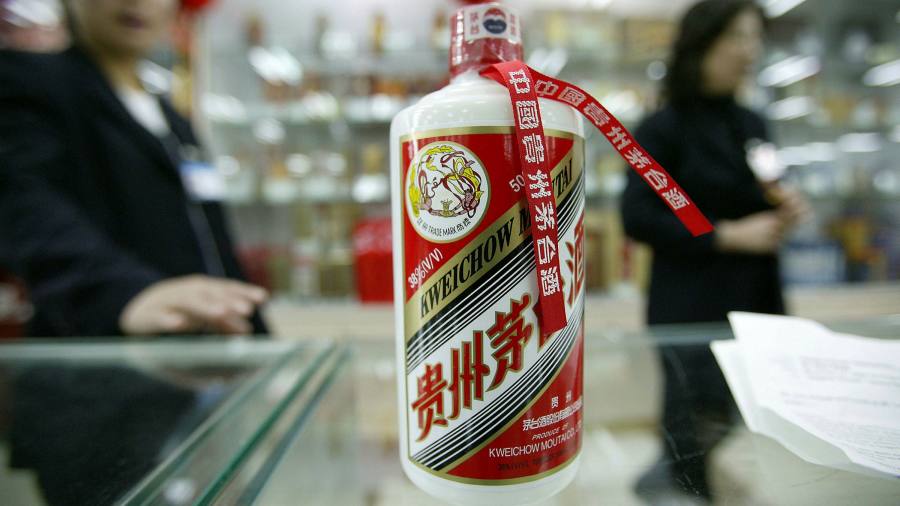[ad_1]
The Chinese stock market dropped further on Monday, taking the decline from recent record highs to 12 per cent, on concerns that equities in Shanghai and Shenzhen are overvalued and vulnerable to rising US bond yields after an extended rally fuelled by China’s economic recovery from the pandemic.
China’s CSI 300 index of Shanghai and Shenzhen-listed stocks dropped 3.5 per cent on Monday, with the biggest single-day fall in about seven months, exceeding the 10 per cent fall from recent highs that puts the market in a correction.Â
The sustained fall in prices adds to wider global fears around inflated asset prices as borrowing costs begin to increase.
“People are really focusing on how the increase in [US Treasury] yields will affect China’s stock market†said Michelle Lam, greater China economist at Société Générale.Â
The drop on Monday came despite data showing exports rose more than 60 per cent and imports rose 22 per cent from a year ago in the January-February period, reflecting both the country’s domestic rebound from the pandemic and surging global demand.
China’s currency was also weaker on Monday, with the onshore exchange rate falling 0.4 per cent to Rmb6.5241 against the dollar.
The shakeout in stocks come after several warnings over asset prices this year. In January, Ma Jun, an adviser to the People’s Bank of China, said the central bank would need to adjust its policy to address the risk of bubbles, in comments that sent stock prices tumbling.

That was followed by comments from Guo Shuqing, the country’s top banking regulator, who last week said he was worried about bubbles in foreign markets and their potential impact on the Chinese financial system, as well as in the country’s own real estate sector.
Investors are grappling with the prospect of a stronger-than-expected global recovery and higher inflation later this year. Rising Treasury yields, which signal falling bond prices, can also push down investor expectations for companies’ future cash flows, hitting stock valuations.
Lam at SocGen said that recent signals from the National People’s Congress in Beijing had been more dovish than many expected, calming concerns that policymakers could normalise monetary and fiscal policy too quickly.
But she added that valuations for Chinese stocks, particularly those in technology and new energy segments, had nonetheless become vulnerable to a sell-off after so many months of gains. “The rally has been too crazy — it’s healthy to see a normal correction like this.â€
The recent stock market falls in China have wiped hundreds of billions of dollars off some of the country’s most valuable businesses.Â
Moutai, the spirits maker and one of the biggest risers as part of China’s equities surge last year, reached a peak market capitalisation of just over half a trillion dollars in February this year. Since then, it has lost a quarter of its value, or more than $120bn.
Hong Kong’s market has also followed mainland bourses lower, with tech stocks performing especially poorly. The city’s Hang Seng Tech index fell 2 per cent on Monday, led lower by falls of more than 5 and 2 per cent for Chinese tech groups Tencent and Alibaba, respectively.
[ad_2]
Source link






